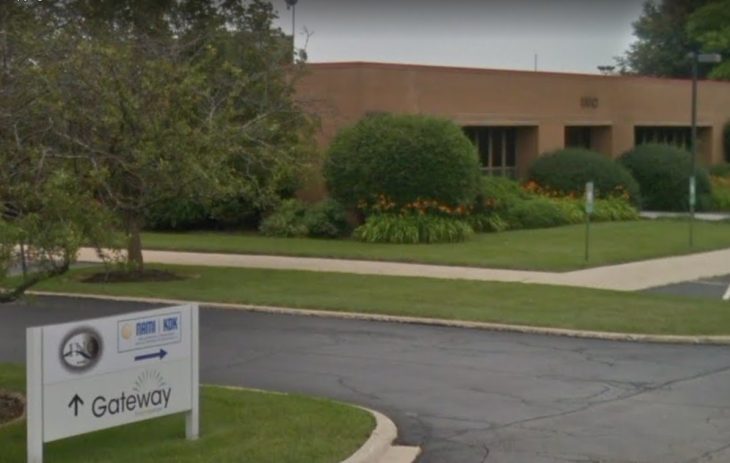About Gateway Foundation
Gateway’s recovery center in metropolitan Aurora, Illinois, offers medication assisted treatment (MAT) and medically supervised withdrawal in a caring and encouraging atmosphere. Their withdrawal management includes round the clock nursing care under the direction of skilled doctors and an extensive medical staff.
Following a comprehensive mental and physical assessment, you’ll be prescribed drugs to improve withdrawal symptoms and aid in preventing relapses. To address each patient’s specific needs, the staff will make a concerted effort to address all your co-occurring disorders by developing a customized treatment plan.
Even the most severe cases of trauma and mental health issues can be handled by the dedicated staff at this facility. Due to their smaller facility size, they can provide you with the customized care you need. You can participate in a range of program models such as Recovery Advantage, which provides individualized treatment plans. It offers round the clock access to healthcare in a non-hospital setting.
The multifaceted approach provided by their peer recovery support includes a number of techniques such as 12 Step groups, SMART recovery and refuge recovery. There’s also standard dialectical behavior therapy (DBT), which emphasizes emotional regulation as a means of promoting holistic healing, and cognitive behavioral therapy (CBT). In order to navigate necessary changes and emphasize the benefits of sobriety, they provide motivational interviewing (MI).
Their residential treatment provides round the clock thorough supervision and support for individuals who require more structure. With the help of outpatient services such as half-day and full-day programs, you can continue to receive support while managing your daily life. They provide a program for alumni engagement that offers educational opportunities and social activities to support recovery throughout one’s life.
Levels of Care
-
Inpatient
Inpatient and residential programs provide round-the-clock medical and emotional support as you live at the treatment facility. This level of care may be recommended if you have severe addictions or mental health conditions since it removes outside distractions and allows you to focus solely on therapy.
-
Outpatient
In outpatient therapy, you’ll attend therapy sessions several times each week while living at home. This is ideal if you have a strong support system and a lower risk of relapse. Outpatient treatment offers flexibility to maintain work, school or family obligations.
-
Aftercare
Aftercare programs provide ongoing support after you complete a rehab program. They may include several components to help you maintain sobriety including therapy, community support groups and relapse prevention strategies. This gives you a network of resources as you reintegrate into your daily life.
-
Dual Diagnosis
Dual diagnosis programs address substance use disorders and co-occurring mental health conditions simultaneously. This integrated approach to care improves the likelihood of long term recovery and stability by addressing the root causes of addiction.
Detox Service Setting
-
Inpatient Detox
Inpatient detox occurs in a dedicated treatment facility. You’ll live there around the clock and receive intensive medical support and supervision to help manage your withdrawal symptoms. It is suitable for individuals with moderate to severe addictions as it ensures a stable detox environment.
-
Outpatient Detox
Outpatient detox gives you access to medically supervised withdrawal services while still allowing you to live at home. You’ll attend a clinic for treatment and monitoring. This flexible option is suitable for those with mild to moderate withdrawal symptoms who have strong support systems.
Programs
-
Adult (18+)
Adult programs address the substance use and life challenges specific to adults. Therapists can deliver sessions in individual, group and family settings. Services often include job support and life skills training in a structured environment.
-
Alcohol Detox
Alcohol detox programs offer medical support to help individuals withdraw safely from alcohol. Your care team may use medications to ease your symptoms and provide medical monitoring to address complications.
-
Drug Detox
Drug detox programs support individuals who are withdrawing from addictive substances like cocaine and heroin. Medical support helps you manage symptoms in a controlled and safe environment so you can achieve initial sobriety.
-
Men
Men's programs address substance use while also considering the social pressures, family roles and mental health concerns that are specific to men. You’ll learn healthy coping mechanisms as you build emotional resilience and develop communication skills.
-
Opioid Detox
Opioid detox uses medications to ease severe withdrawal symptoms. It also includes medical supervision to help you manage potential complications. These services allow you to stabilize and begin a recovery plan.
-
Women
Women's programs offer a safe and supportive space to focus on gender specific issues such as trauma, family roles and mental health conditions. Therapists tailor the sessions to address women's needs and foster empowerment in a healing and nurturing environment.
-
Young Adult (18 - 25)
Young adult programs are designed for individuals who are transitioning into adulthood. Topics of discussion typically include identity, independence and peer relationships. Providers may also offer life skills training and career support.
Payment Options
- Payment Assistance
- Medicaid
- Private Insurance
- Self Pay
Accreditations
-
 Joint Commission
Joint Commission
Contact
400 Mercy Lane
Aurora, IL 60506





